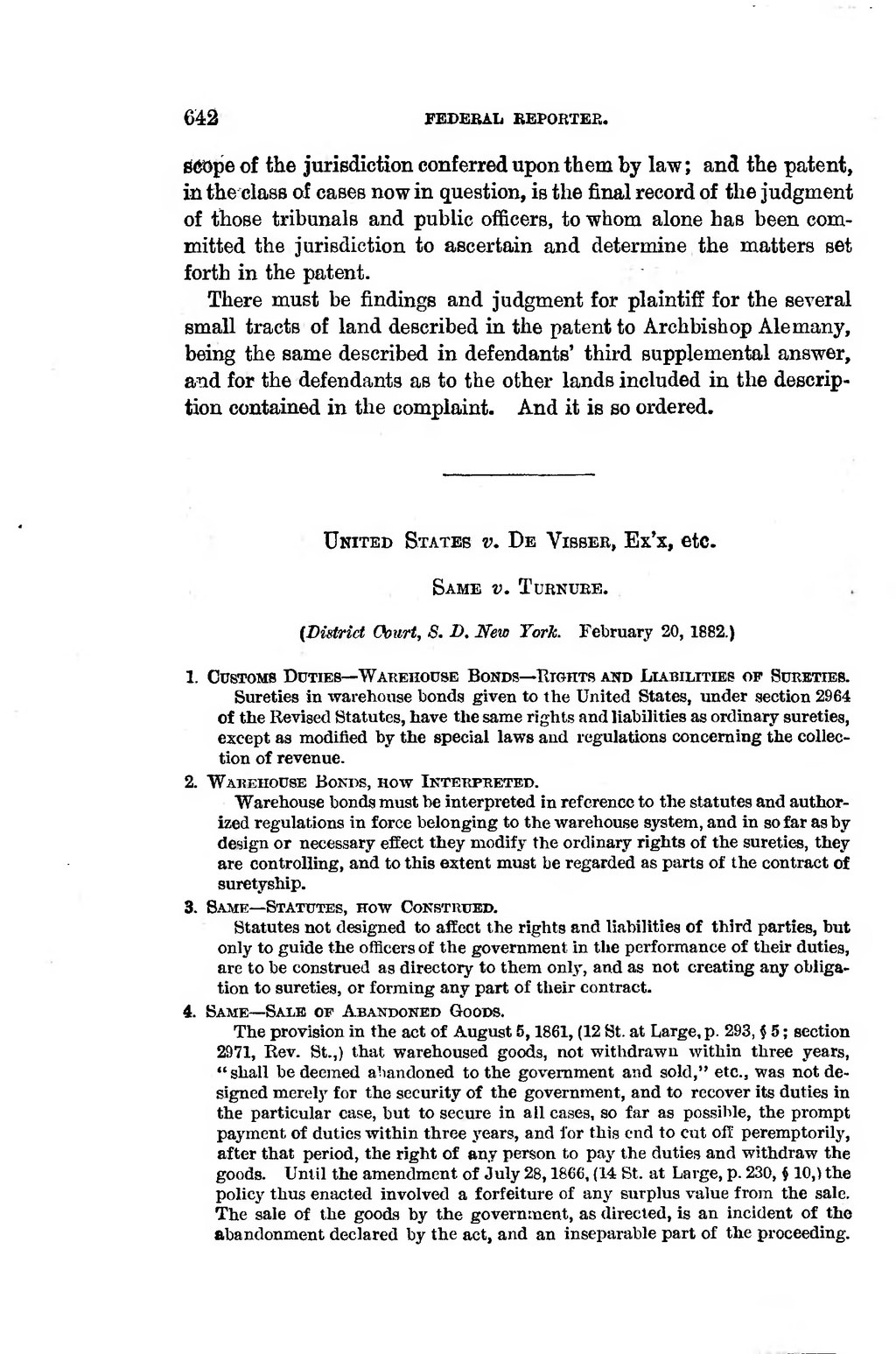642 FEDERAL REPORTER. �seOpe of the jurisdiction conf erred upon them by law ; and the patent, in the class of cases now in question, is the final record of the judgment of those tribunals and public officers, to whom alone has been com- mitted the jurisdiction to ascertain and determine the matters set forth in the patent. �There must be findings and ]'udgment for plaintiff for the several small tracts of land described in the patent to Archbishop Alemany, being the same described in defendants' third supplemental answer, aud for the defendants as to the other lands included in the descrip- tion contained in the complaint. And it is so ordered. ���United States v. De Vissee, Ex'x, etc. �Same v. Tuenuee. �{District Oourt, 8. D, New York. February 20, 1882.) �1. OusTOMS DuTiES— Warehouse Bonds— TliGHTS and Liabilitibs of Surettes. �Sureties in warehouse bonds given to the United States, under section 2964 of the Revised Statutes, have the same rights and liabilities as ordinary sureties, except as modified by the special laws and regulations concerning the collec- tion of revenue. �2. Waiiehouse Bonds, how Intetipheted. �Warehouse bonds must be interpreted in refcrencc to the statutes and author- ized regulations in force belonging to the warehouse System, and in sofar asby design or necessary efEect they modify the ordinary rights of the sureties, they are controlling, and to this extent must be regarded as parts of the contract of suretyship. �3. 8.\ME— Statutes, how Constiiubd. �Statutes not designed to afEect the rights and liabilities of third parties, but only to guide the offlcers of the government in the performance of their duties, are to be construed as directory to them only, and as not creating any obliga- tion to sureties, or forming any part of their contract. �4. Bamb — Sale of Abandoned Goods. �The provision in the aot of August 5, 1861, (12 St. at Large, p. 293, ? 5 ; section 2971, Rev. St.,) that warehoused goods, not withdrawn within three years, "shall be deemed a'iandoned to the government and sold," etc., was not de- signed merely for the security of the government, and to rccover its duties in the particular case, but to seoure in all cases, so far as possible, the prompt payment of duties within three j'ears, and l'or thig end to eut off peremptorily, after that period, the right of any person to pay the duties and withdraw the goods. Until the amendment of july 28, 1866, (14 St. at Large, p. 230, 4 10,) the policy thus enacted involved a forfeiture of any surplus value from the sale. The sale of the goods by the government, as directed, is an incident of the abandonment declared by the act, and an inseparable part of the proceeding. ��� �
Page:Federal Reporter, 1st Series, Volume 10.djvu/654
This page needs to be proofread.
